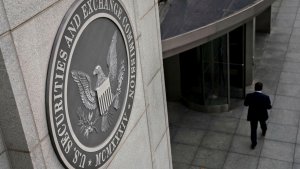It seems, however, that the CFTC is now pushing back as some US lawmakers and government officials hint that the SEC could get to rule over the asset class.

For years the digital asset ecosystem has complained about the lack of clarity in regard to the regulatory framework for the industry and the United States Congress is finally introducing bill proposals that could clear the path for the technology and asset class.
In late July, a piece of legislation has been announced by Representative Don Beyer (D-VA). The bill has already been reviewed by attorney Thien-Vu Hogan, who concluded that XRP would not be subject to the SEC supervision if the legislation were to pass.
Instead, XRP would be regarded as a Digital Asset (not a Digital Asset Security), which would fall under the scope of the Commodity Futures Trading Commission, according to Ms. Hogan.
The proposed legislation was announced the same day SEC Chair Gary Gensler replied to Senator Elizabeth Warren’s letter requesting information about the regulator’s “authority to properly regulate cryptocurrency exchanges and to determine if Congress needs to act to ensure that the SEC has the proper authority to close existing gaps in regulation”.
At the time, attorney James K. Filan said the move was an orchestrated powerplay to outflank the CFTC for control of the crypto space.
Earlier this week, SEC Chair Gensler gave a speech on the role of the agency towards crypto. Noting that “my views are my own, and I’m not speaking on behalf of the SEC staff”, the top official said “there’s actually a lot of clarity” as to many of these tokens being offered and sold as securities.
He then quoted former SEC Chairman Jay Clayton in 2018: “To the extent that digital assets like [initial coin offerings, or ICOs] are securities — and I believe every ICO I have seen is a security — we have jurisdiction, and our federal securities laws apply.”
“You see, generally, folks buying these tokens are anticipating profits, and there’s a small group of entrepreneurs and technologists standing up and nurturing the projects. I believe we have a crypto market now where many tokens may be unregistered securities, without required disclosures or market oversight”, he added.
It seems, however, that the CFTC is now pushing back as some US lawmakers and government officials hint that the SEC could get to rule over the asset class.
“Only one US regulatory agency has experience regulating markets for Bitcoin & Crypto and it is not the SEC. It is the CFTC. If the Biden Administration is serious about sensible Cryptocurrency regulation, it needs to nominate a CFTC chairman”, said Chris Giancarlo, former CFTC Chair.
CFTC Commissioner also commented on the growing influence of the SEC over the emergent asset class: “Just so we’re all clear here, the SEC has no authority over pure commodities or their trading venues, whether those commodities are wheat, gold, oil….or crypto assets”.
SEC v. Ripple: XRP is not subject to SEC under pending bill, said attorney Thien-Vu Hogan
Lack of regulatory clarity is a central issue in the SEC v. Ripple lawsuit as the Defendants claims there was no Fair Notice as to whether the sale of XRP would be considered an unregistered securities offering.
Two of the five SEC Commissioners – Hester Peirce and Elad Roisman – have come forward with a public statement admitting to the overall confusion within the cryptocurrency industry in regard to rules and regulations.
Ripple’s Fair Notice defense is believed to be a threat to the SEC’s future enforcement actions against the crypto ecosystem. The agency itself warned the Court that a Ripple win on Fair Notice would nullify the Howie Test.
“This case is about winning and making the whole crypto space succeed. If the SEC or anyone else gets hurt in the process, they brought it on themselves. But that’s not the goal”, said attorney James K. Filan.
As US lawmakers and the Biden Administration accelerate key decisions to build a solid regulatory framework for digital assets, it is possible that the SEC v. Ripple lawsuit may benefit from the upcoming clarity, which is expected to have retroactive effects.
